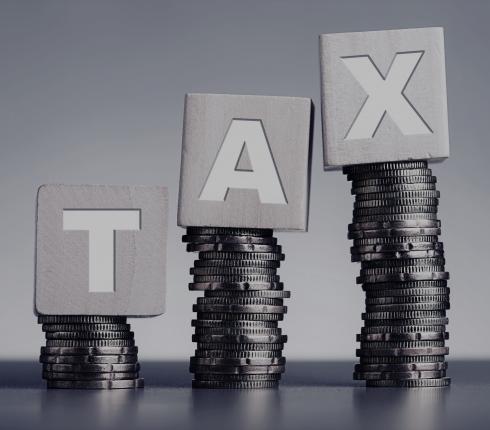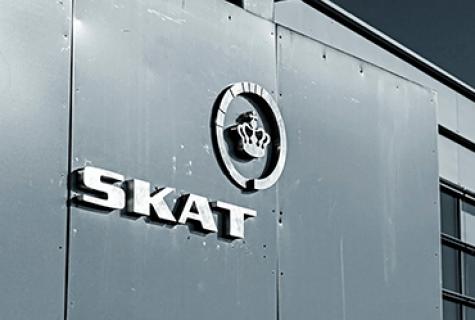Once again, the Danish Tax Agency amends the practice on which investment undertakings benefit from the VAT exemption for tax-exempt "management of investment funds" in the VAT Act
The Danish Tax Agency has published an indicative guideline that changes the practice on which investment undertakings are considered investment funds to which VAT exempt management services can be provided.

Background and consequences of the indicative guideline
The new indicative guideline is based a guideline from the VAT Committee, which consists of the European Commission and the tax authorities of all EU Member States. The indicative guideline concerns which investment undertakings are considered investment funds under VAT legislation, as VAT exempt management services may be provided to these.
The management of investment funds is exempt from VAT under section 13 (1)(11)(f) of the VAT Act.
Since the EU Court of Justice in 2014 delivered its judgment in the "ATP case" (C-464/12, ATP PensionService A/S), the Danish Tax Agency has published a number of indicative guideline that have clarified/changed the conditions under which an investment undertaking constitutes an investment fund under VAT legislation and is, thus, covered by the abovementioned provision and to which services may be considered management services.
As a result, several companies/services have been considered within the scope of the VAT exemption. Because of this, many companies have filed claims for VAT refunds.
None of these claims for VAT refunds has been processed yet. However, shortly after the publication of the indicative guideline in question, the Danish Tax Agency has convened all those who have filed a VAT refund claim to an information meeting. It is expected that these cases will now be processed.
The Danish Tax Agency’s changed practice
The new indicative guideline[1] clarifies whether an investment undertaking can be considered an investment fund under VAT legislation. Key is that the investment undertaking is either covered by the UCITS directive, which includes collective investments in marketable securities, or has characteristics similar to these, and thus carries out the same transactions or at least are comparable to such an extent that the investment undertaking can be regarded as competing with UCITS investment undertakings.
At the same time, the Danish Tax Agency also acknowledges that an investment undertaking investing in assets other than securities and liquid financial assets, such as real estate, could be considered an investment fund for the purposes of VAT, to which tax-exempt management services can be provided.
To ensure that an investment undertaking may receive VAT exempt management services, investors must not be guaranteed a minimum return on their investments, as it is a requirement that investors bear the market risk for the investment. This is especially expected to affect pension funds.
Requirements of funds not covered by the UCITS directive
As a result of the guideline from the VAT Committee, the following five requirements are listed in the Danish Tax Agency’s indicative guideline. These must all be met for the so-called non-UCITS investment undertaking to be covered by the VAT exemption:
- The investment undertaking is intended to carry out collective investments
- The investment undertaking invests based on the principle of risk diversification
- Investors bear the investment risk and return on investment depends on the investments
- The investment undertaking is subject to specific state supervision
- The investment undertaking is subject to the same conditions of competition and appeals to the same circle of investors as UCITS investment undertakings.
On the other hand, the investment undertaking is not required to be open to the public, as is required of the investment undertakings under the UCITS directive.
Alternative investment funds in the AIFM directive are also considered collective investment funds within the meaning of the VAT Act if the investment undertaking concerned meets the five requirements mentioned above. In this context, it should be noted that it is, thus, an open question whether registered AIFMs which are only registered and not subject to supervision do not meet the requirements, and if hedge funds and the like which invest in accordance with the principle of absolute return cannot be considered as meeting the requirement of risk diversification.
Refund of VAT and resumption
As a general principle, if a past practice has been detrimental to the undertakings concerned, the resumption of VAT liability may be requested. However, the following should be noted:
Where a request for resumption is submitted, the request must cover all the tax periods that may be reassessed. A request for selected periods only cannot be submitted.
- The time limit for the ordinary resumption is three years after the expiry of the declaration.
- The deadline for an extraordinary resumption is six months after the taxable subject became aware of the fact that the previous practice was overruled, which is six months from 7 November 2019.
An extraordinary resumption may be made only to the benefit of the taxable subject from the tax period, which was challenged in the first case, which resulted in the overruling of the practice. This was 1 January to 31 December 1996.
Subsequent preceding stages
The customers of the taxable subject may request a repayment of the financial burden from the Danish Tax Agency which the tax payments have resulted in. The preceding stages’ claim against the Danish Ministry of Taxation is subject to obsolescence after three years after the due date. This implies that the claim for recovery becomes obsolete three years after the tax in question has been paid to the supplier.
Is the Danish Tax Agency's indicative guideline relevant to you?
Are you unsure whether your company constitutes an investment fund under VAT legislation in accordance with the Danish Tax Agency's changed practice or do you want help to get VAT refunds? Then feel free to contact lawyer Robert Mikelsons, head of NJORD’s tax specialist group. NJORD already assists several companies in getting VAT refunds.
[1]Of 7 November 2019.













